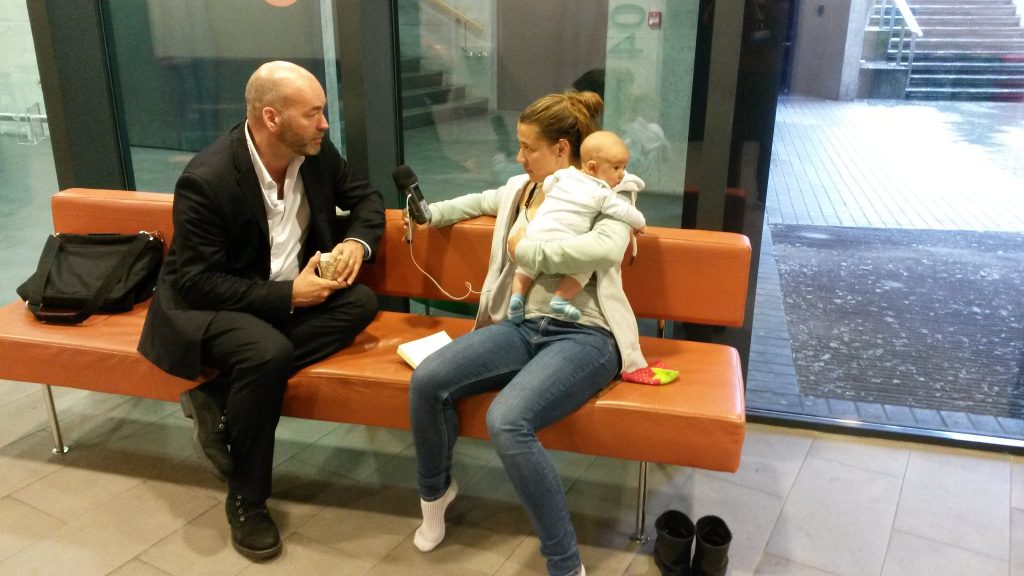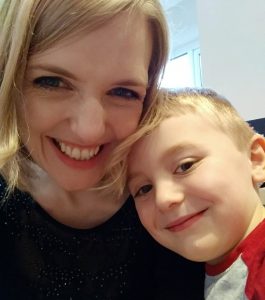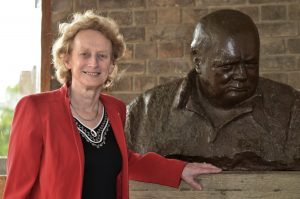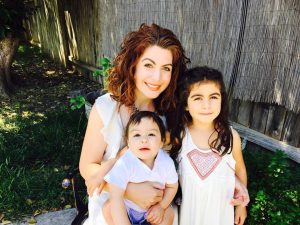Podcast: Play in new window | Download
MOTHER GUILT ISN’T PRODUCTIVE FOR ANYONE SAYS BETHANY KOLBABA KARTCHNER
In 2012, at the age of 37, Bethany Kolbaba Kartchner, a stay-at-home mother of six children ages 2-12, decided that she wanted to become a PhD-level biochemist. This career change required her to return to academia to take the necessary classes to apply to a doctorate program. To reduce any disruptions to her family’s schedule, she took one online class a semester at a community college. For 4 years, she studied from 4-6 AM before her children started their day. Eventually, to complete the required upper division classes, she enrolled at Arizona State University in Tempe, Arizona. As her children matured, she got involved in protein design in the lab of Jeremy Mills where she fell in love with research. In 2018, she started the PhD program in Biochemistry at ASU. She will defend her thesis in 2023.
Bethany believes that her strong support network is the key to successfully navigating her career change. She sees her support network as two parts. The first is a local network consisting of friends and family. Her husband, children, and parents are a tremendous source of emotional and physical support. The second part is less tangible and consists of the examples and stories of other female role models. One story that Bethany found especially inspirational was of a woman scientist with 6 children who received an award for excellence in research. “I thought, that’s me! And if she can do it, I can do it.”
As Bethany’s career change trajectory gathered speed, she made it a point to prepare both herself and her family for her increasing time away from home to work in the lab. Her husband was able to establish a more flexible work schedule so he could take over meal preparation and grocery shopping and she taught her children to be more self-sufficient. For herself, she got very serious about her time management skills.She also became very creative in her work schedule. She is fortunate that she has the support of her colleagues, PI, and other faculty members as she navigates a flexible schedule. “I feel like everyone is rooting for me and cheering me on,” she says.
Mom guilt was a challenge that Bethany wrestled with throughout her life until she met Jane Clarke, a renowned scientist-mother, and now president of Wolfson College in Cambridge, UK. When Bethany learned that Jane also returned to academia later in life to obtain her doctorate, she asked her what advice she would give her younger self starting on that path. Jane’s answer really struck a nerve. She said, “I would tell myself that the children are just fine. They’re doing fine.” This statement pushed Bethany to rethink the mom guilt that often manifested itself as worry. She realized that worrying about her children all the time “isn’t helping them in any way and it isn’t helping me in any way. If there is a problem that I need to address as a mother in raising my children, worrying about it isn’t going to address it. It is just wasted energy. I think that it is better if there is a problem, to face it head on as opposed to wasting that energy on that worry…So when I did start to worry, I would ask myself is there really a basis for this? Do I really need to be concerned about this? Or is this just me being silly? Whenever I decided it was me being silly, I would redirect my thoughts to something more productive because that mother guilt isn’t productive for anyone.”



